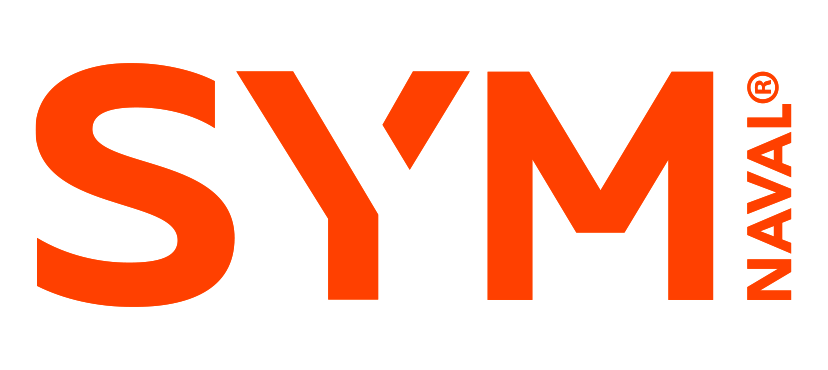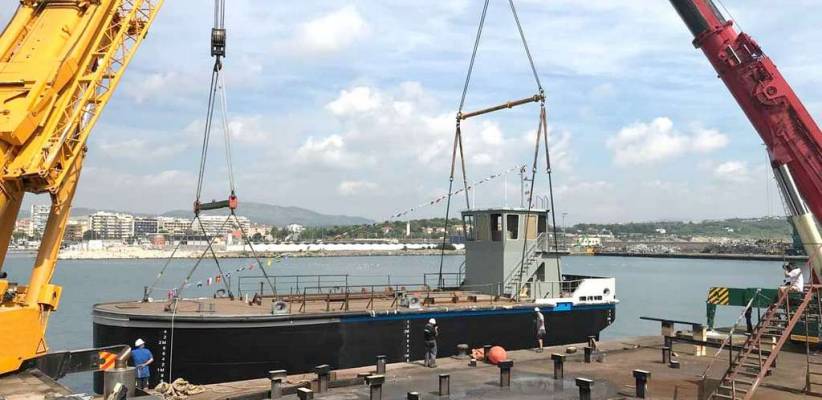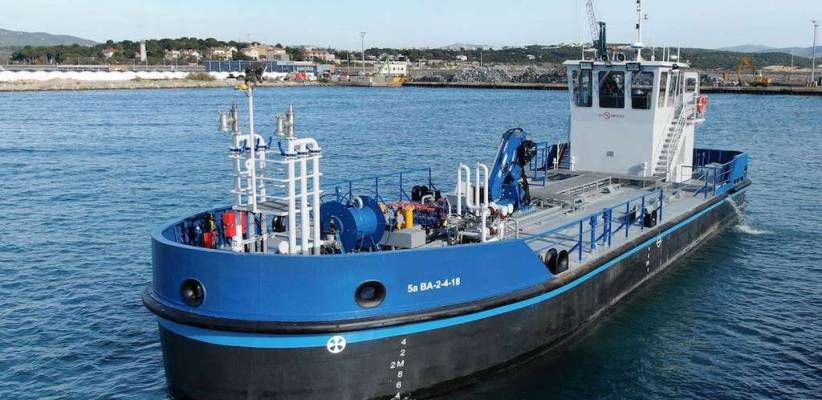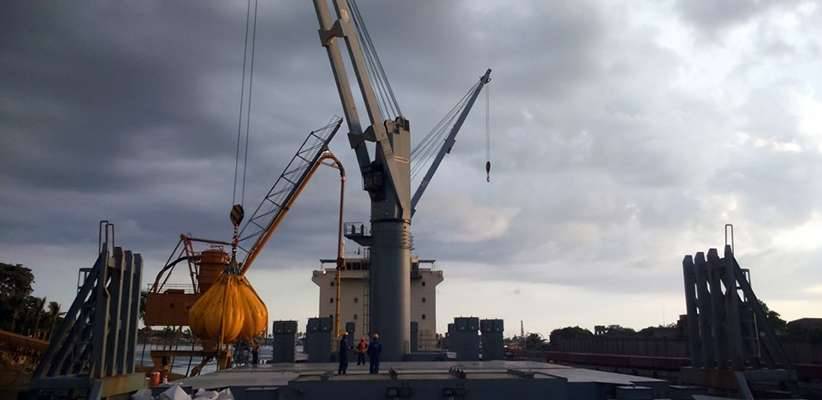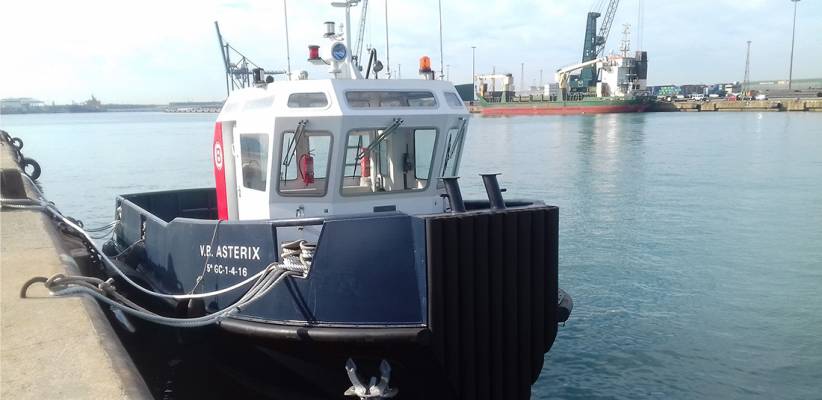For maritime operators seeking specialized MARPOL-compliant waste collection vessels, SYM Naval’s MARPOL Harbour Vessels offer cutting-edge solutions designed to meet the most stringent environmental standards.
What is MARPOL?
MARPOL stands for “Marine Pollution” – an international convention designed to prevent ocean contamination from ships. Developed by the International Maritime Organization (IMO), this comprehensive regulation addresses the environmental risks posed by maritime activities.
Origin of MARPOL convention 73/78
The convention originated in 1973 during the International Conference on Marine Pollution. A subsequent protocol in 1978 modified the original agreement, resulting in the combined MARPOL Convention 73/78. Its primary objectives include:
- Eliminating intentional marine pollution by hydrocarbons
- Minimizing accidental substance spills
- Ensuring proper treatment of ship-generated residues on land
- Promoting recycling of maritime waste
MARPOL annexes: comprehensive environmental protection
The convention classifies ship-generated residues through six distinct annexes:
Annex I: Hydrocarbon pollution prevention
Covers pollution from:
- Ballast water contaminated with crude oil
- Oily mixtures from engine rooms
- Fuel and oil purification equipment waste
Annex II: Noxious liquid substances control
Regulates:
- Ballast water contamination
- Tank cleaning liquid substances
- Mixtures containing dangerous substances
Annex III: Harmful substances in packaged form
Addresses residues from:
- Freight containers
- Portable tanks
- Road and rail tank wagons
- Spillage during loading and unloading operations
Annex IV: Sewage pollution prevention
Manages waste from:
- Toilets and urinals
- Medical facility drainage
- Animal holding spaces
- Mixed wastewater systems
Annex V: Garbage pollution control
Encompasses:
- Food waste
- Domestic and operational waste
- Plastics
- Cargo residues
- Incinerator ashes
- Fishing gear
- Animal carcasses
Annex VI: Air pollution prevention
Focuses on reducing atmospheric emissions from maritime vessels.
Discharge regulations and maritime restrictions
Sewage discharge guidelines
Ships must comply with strict sewage discharge regulations:
- Within 3 nautical miles of nearest land: No discharge of sewage
- Between 3-12 nautical miles: Sewage must be comminuted and disinfected
- Beyond 12 nautical miles: Sewage can be discharged if using an approved sewage treatment plant
Bilge water management
- Ships must maintain bilge water separators
- Discharge allowed only when:
- Oil content is less than 15 parts per million
- Vessel is en route
- At least 12 nautical miles from the nearest land
Garbage disposal restrictions
- Plastic disposal is strictly prohibited anywhere in the ocean
- Food waste can be discharged beyond 12 nautical miles
- Operational waste must be minimized and properly documented
Key maritime terms
SOPEP (Shipboard Oil Pollution Emergency Plan)
A mandatory documentation requirement for vessels, detailing:
- Procedures for reporting oil spills
- Emergency response protocols
- Mitigation strategies for potential environmental damage
ORB (Oil Record Book)
A mandatory logbook for recording:
- Oil transfer operations
- Ballast water exchanges
- Machinery space drainage
- Accidental oil discharges
Equipment mandatory for ships above 400 GT
Ships must be equipped with:
- Oil filtering equipment
- 15 ppm bilge alarm
- Oily water separator
- Oil content meter
- Dedicated clean ballast tanks
Special protection areas
MARPOL identifies specific maritime zones requiring enhanced environmental protection:
- Mediterranean Sea
- Baltic Sea
- Black Sea
- Red Sea
- Gulf Area
- Antarctic Area
These regions have more stringent discharge restrictions and require additional precautionary measures.
Port waste management requirements
When ships arrive at ports, masters must:
- Communicate residue types and quantities
- Deliver waste to appropriate reception facilities
- Comply with detailed waste handling protocols
European Union implementation
The European Directive 2000/59/EC reinforces MARPOL principles by mandating:
- Adequate port reception facilities
- Comprehensive waste management plans
- Mandatory waste delivery before port departure
- Provisions for waste storage during voyages
Spanish maritime regulation
Spain implemented the European directive through Royal Decree 1381/2002, which:
- Reduces maritime waste discharges
- Prevents illicit dumping
- Improves port waste reception infrastructure
- Enhances marine environment protection
The decree requires ship captains to deliver all generated waste in authorized port facilities before departure, with specific provisions for ships with regular routes.
Compliance and consequences
Non-compliance with MARPOL regulations can result in:
- Significant financial penalties
- Vessel detention
- Potential legal prosecution
- Revocation of maritime certifications
Technological solutions
Modern maritime technology continues to evolve, offering:
- Advanced waste management systems
- More efficient separation technologies
- Real-time monitoring of discharge parameters
For operators seeking comprehensive MARPOL compliance, specialized vessels like those from SYM Naval provide cutting-edge waste collection and management solutions.
